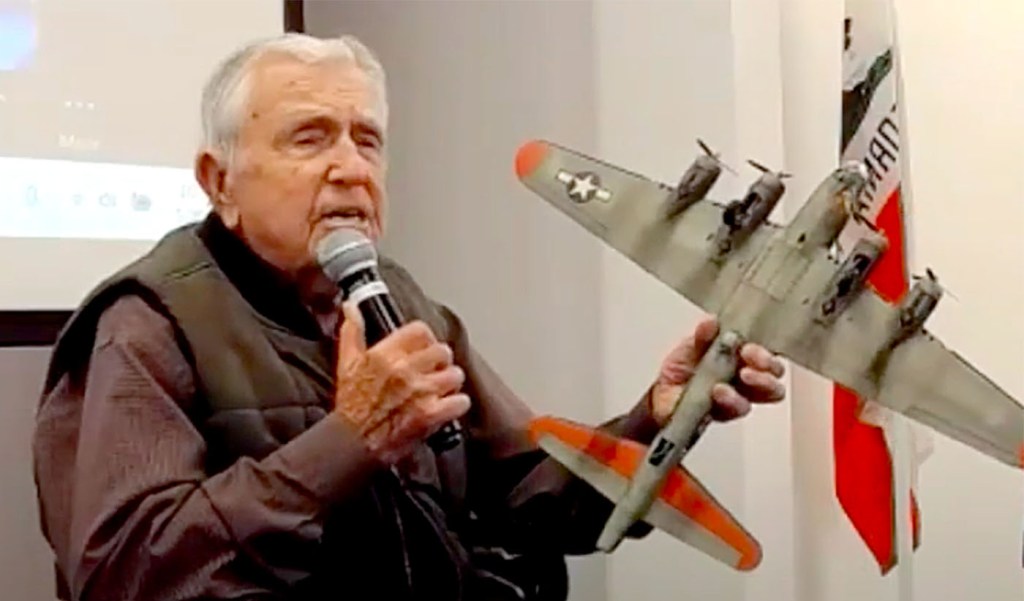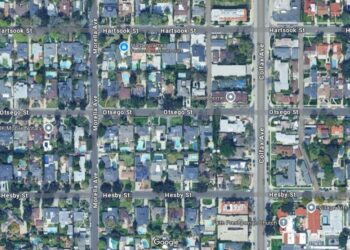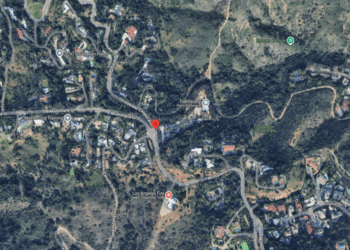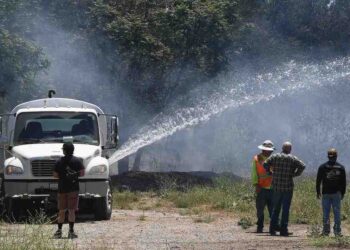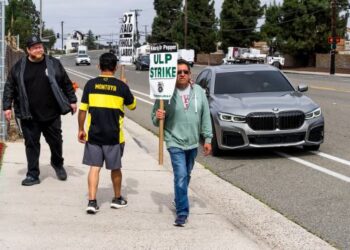I’ve been writing Memorial Day columns for more than 40 years. I’ve listened to hundreds of combat veterans who served in World War II and Korea tell their stories with only one request.
Please, don’t call me a hero. The real heroes never made it home.
You can’t interview them. The closest you can come is 105-year-old Irvin Poff from Ojai, who sat in his wheelchair last week with a handheld microphone close to his lips — holding a roomful of local veterans, decades his junior in age, in the palm of his hand.
If you want your kids and grandkids to really understand why they don’t have to go to school on Monday, let Irvin Poff tell them. He has only one request.
“I don’t consider myself a hero by any means, and I don’t intend to brag,” the World War II B-17 bomber pilot said. “I’m just telling you how it was. I was scared plenty.”
You’re flying at 25,000 feet with the lives of your 10-man crew and the world’s freedom on your shoulders. You’re shivering because it’s zero degrees up there in the skies over southern Italy where your job is to bomb well-guarded oil fields supplying the Axis — the bad guys.
Even the sheepskin you’re wearing doesn’t protect you from the blistering cold.
“I looked down and there were icicles on the bottom of my legs from my sweat. In front of me were puffs of smoke — flack from over 200 anti-aircraft guns trained on us from the ground. The sky was dark with it.”
Suddenly, your number three engine quits. You’ve been hit. You fight mightily to stay in tight formation with the other bombers because if you drop out you know what’s going to happen.
“The chances of making it home by yourself are pretty slim,” Irv said. “A single plane is a prime target.”
You activate emergency power, drop your bombs on the target, and fly home on three engines and more than 200 bullet holes underneath your B-17 — never breaking formation.
Mission accomplished. No enemy aircraft and tanks trying to kill our…
Read the full article here

